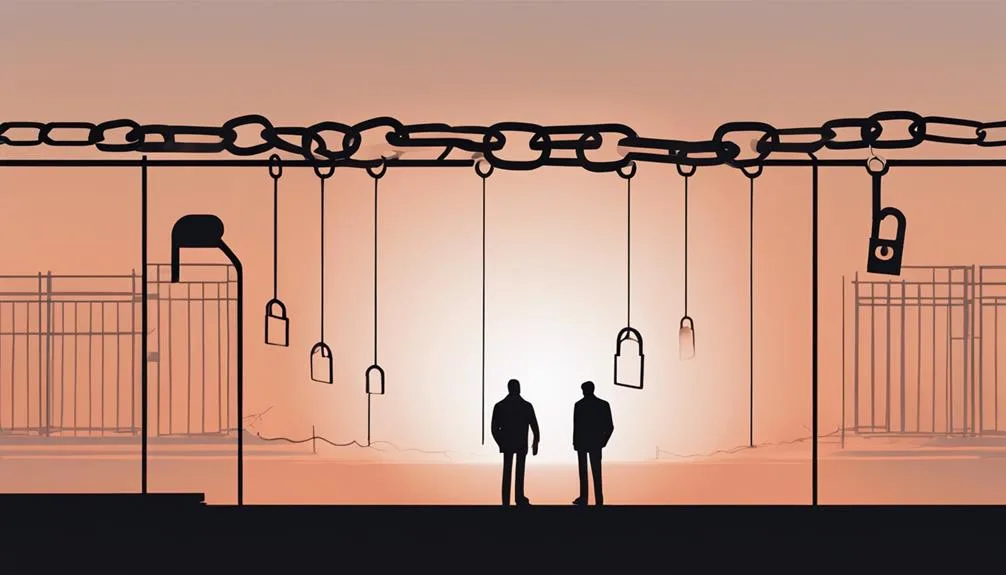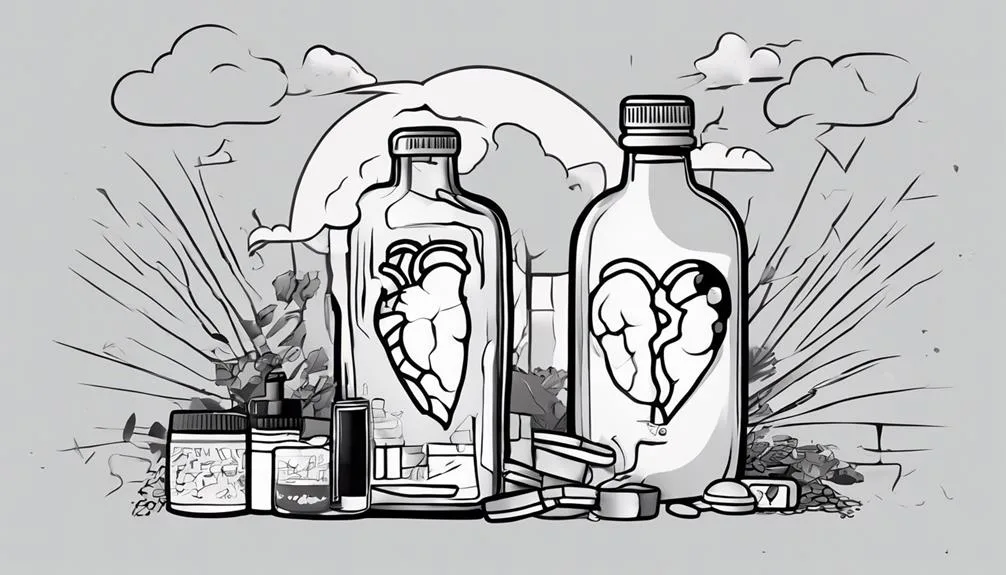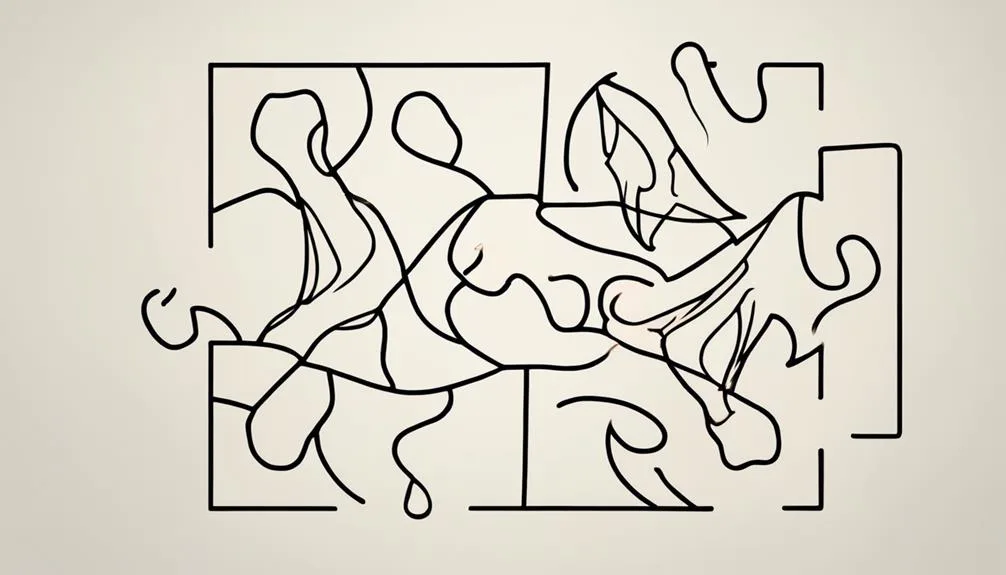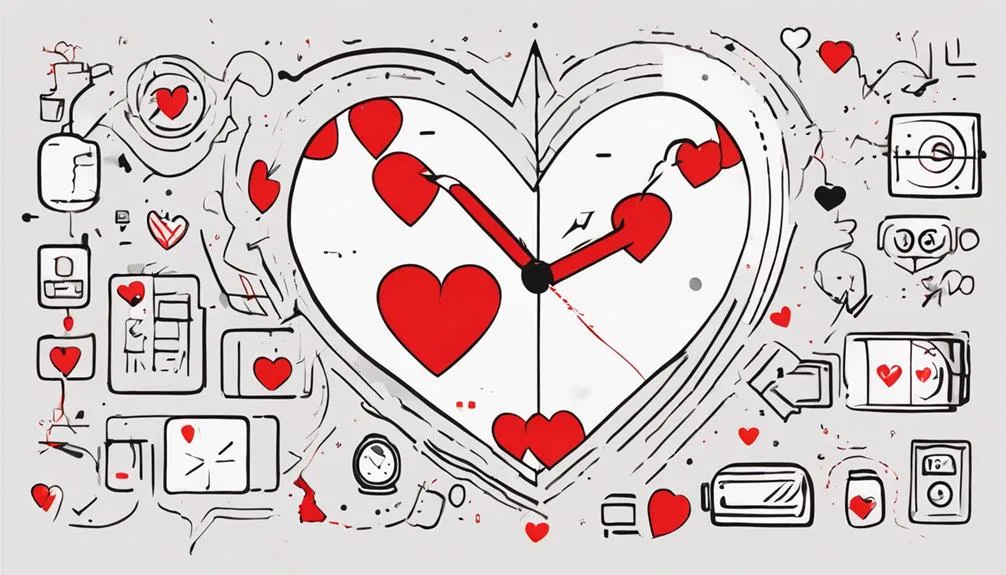Navigating relationships can be tough, with clear deal breakers that shouldn’t be overlooked. Trust is central to any relationship, and without it, the relationship is unstable. Problems like poor communication, different life goals, and cheating are some of the major issues.
Recognizing these deal breakers is crucial for a healthier and happier relationship. This introduction sets the stage for a deeper look at what makes or breaks a relationship.
Key Takeaways
- Trust issues, including dishonesty and secretive behavior, can fundamentally undermine a relationship.
- Persistent communication challenges often signal deeper unresolved issues needing attention.
- Misaligned life goals and aspirations can lead to long-term dissatisfaction and conflict.
- Recognizing and addressing deal breakers like abuse, manipulation, and infidelity is crucial for a healthy relationship.
Lack of Trust

Trust is the foundation of any strong relationship, and without it, you’re likely headed for trouble. When you start noticing secretive behavior in your partner, it’s a red flag. This isn’t just about hiding their phone or being vague about their whereabouts; it’s the consistent pattern that suggests they’re not fully open with you. And it’s not just about what they’re hiding, but also about the trust you’re losing.
Similarly, jealous tendencies can erode trust. If they’re constantly questioning your loyalty or accusing you of things you haven’t done, it’s a sign of deeper issues. These behaviors signal a lack of trust, and without addressing them, you’ll find it hard to build a secure, loving relationship.
Communication Breakdown

Effective communication serves as the lifeline of a healthy relationship, yet when it breaks down, you’re left traversing a sea of misunderstandings and unmet needs. Here are three tell-tale signs of communication breakdown to watch out for:
- Silent treatments become the norm, not the exception. Instead of resolving conflicts, you or your partner resort to silence, leaving issues unresolved.
- Short, clipped responses replace meaningful conversations. When asked about your day or feelings, one-word answers become all too common.
- Emotional withdrawal sets in. You start to feel like you’re living with a stranger. Sharing thoughts and emotions feels more like a burden than a relief, leading to a growing emotional gap between you and your partner.
Different Life Goals

Harmonizing your life goals is essential for a relationship’s longevity, but when they diverge, it can signal the beginning of the end. If you’re dreaming of climbing the corporate ladder while your partner dreams of backpacking across Europe with no fixed address, it’s a stark sign you’re not on the same page.
Similarly, discussions about family planning can reveal fundamental differences. Do you envision a house full of kids while they can’t fathom being a parent? These are not minor discrepancies; they’re foundational cracks that can’t always be bridged.
| You | Your Partner | Potential Compromise |
|---|---|---|
| Career Aspirations | Wanderlust | Remote Work/Travel Balance |
| Wants Kids | Prefers No Kids | Open Dialogue on Family Planning |
| City Living | Country Dwelling | Compromise on Location |
Understanding and respecting each other’s life goals is vital, but don’t ignore when your paths diverge too greatly.
Infidelity

While aligning life goals is key to relationship harmony, facing the reality of infidelity introduces a profound challenge to any couple’s bond. Infidelity, whether through physical acts or emotional affairs, shakes the foundation of trust and respect that relationships are built upon.
Here are three signs you shouldn’t ignore:
- Secretive Behaviors: If your partner suddenly becomes guarded with their phone or social media, it’s a red flag.
- Emotional Affairs: Not all infidelity is physical. Emotional connections that breach the boundaries of your relationship can be just as harmful.
- Change in Routine: Unexplained changes in your partner’s routine or availability might indicate they’re spending their time elsewhere.
Recognizing these signs early can save you from prolonged heartache.
Abuse of Any Kind

Abuse, in any form, is a pivotal deal breaker in relationships, demanding immediate attention and action. It’s not just about the physical harm; emotional manipulation and psychological torment are equally destructive.
These actions create a significant power imbalance, making you feel trapped and helpless. If you notice your partner belittling you, controlling your actions, or isolating you from loved ones, it’s a clear sign of abuse. Such behaviors aim to undermine your self-esteem and erode your independence.
Don’t rationalize or dismiss these red flags. It’s essential to trust your instincts and seek support. Remember, respecting your well-being means recognizing when it’s time to walk away from a relationship that’s harming you.
Substance Misuse

Substance misuse can drastically erode the foundation of trust and reliability in a relationship. When your partner struggles with this issue, it’s not just about the individual; it affects both of you deeply.
Here are 3 reasons why you shouldn’t ignore substance misuse:
- Health Impacts: It’s heartbreaking to watch someone you love suffer from the health consequences of substance abuse. Their physical and mental well-being deteriorates, affecting your life together.
- Social Consequences: Substance misuse can lead to social isolation. You may find yourselves cut off from family and friends, damaging your support network.
- Trust Issues: Reliability becomes a thing of the past. Plans fall through, promises are broken, and the uncertainty surrounding your partner’s actions can leave you feeling insecure and alone.
Financial Irresponsibility

Financial irresponsibility can quickly become a major deal breaker in any relationship, leading to stress and conflict over money matters. When you’re sharing your life with someone, their approach to managing finances directly impacts you.
A low credit score mightn’t just be a number; it often signifies deeper issues with managing money, which can affect future loans and purchases you plan to make together. Observing spending habits is also important. If your partner’s spending seems reckless or they’re constantly in debt, it’s a red flag.
These behaviors don’t just strain your bank account; they strain your trust and communication. Addressing these concerns early on is crucial, as ignoring them could lead to overwhelming financial and emotional tolls down the line.
Incompatibility in Intimacy

Just as important as financial compatibility, a matching level of intimacy is key to a fulfilling relationship. When you’re not on the same page with your partner regarding intimacy, it leads to a host of issues that can’t be overlooked:
- Essential Disconnect: You’ll start feeling distant if your emotional needs aren’t being met. It’s like living with a roommate instead of a lover.
- Sexual Dissatisfaction: If your desires or libidos don’t match, it can lead to frustration and resentment, poisoning the well of your relationship.
- Lack of Communication: Incompatibility in intimacy often stems from not talking about your needs and preferences. Silence is the breeding ground for misunderstanding and dissatisfaction.
Ignoring these signs can spell doom for a relationship. It’s vital to address them head-on.
Conclusion
Navigating the path to a fulfilling relationship requires vigilance for certain pitfalls, including trust issues, divergent life ambitions, and abusive behaviors. Open communication, financial and intimate compatibility, and fidelity are foundational.
The presence of substance misuse signals a need for serious consideration. It’s paramount to prioritize personal well-being and happiness.
When faced with these deal breakers, it may be necessary to reflect on the direction of your relationship. Are you willing to compromise your peace for partnership, or is it time to seek a connection that honors your worth and aspirations?

